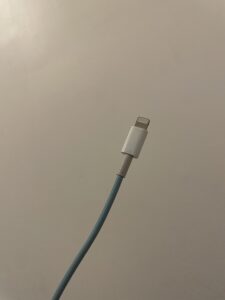Car batteries are an essential component of our automobiles, providing the power needed to start the engine and keep the electrical systems running smoothly. But what happens when they run out of juice? Do car batteries recharge themselves? Well, the short answer is no. Car batteries do not have the magical ability to recharge themselves. However, there is a solution that can keep your battery charged and ready to go whenever you need it. So, let’s dive into the details and find out how we can ensure our car batteries stay fully charged.
Do Car Batteries Recharge Themselves?
Car batteries are an essential component of any vehicle, providing the electricity needed to start the engine and power various electronic systems. But have you ever wondered how car batteries recharge themselves? In this article, we will explore the inner workings of car batteries and shed light on whether or not they have the ability to recharge themselves.
Understanding Car Batteries
Before we delve into the topic of self-recharging car batteries, let’s first understand how car batteries work. A typical car battery is a rechargeable lead-acid battery, consisting of several cells connected in series. Each cell contains a mix of sulfuric acid and lead plates, which undergo a chemical reaction to produce electrical energy.
When you start your car, the battery delivers a burst of electrical energy to the starter motor, allowing the engine to turn over and start running. Once the engine is running, the alternator takes over the role of powering the vehicle’s electrical systems and recharging the battery, if necessary. The alternator is driven by the engine through a belt and uses mechanical energy to generate electrical energy.
The Role of the Alternator
The alternator is a key component in the charging system of a car. Its primary function is to convert mechanical energy from the engine into electrical energy to power the vehicle’s electrical systems and recharge the battery. Here’s how it works:
- The alternator is made up of a rotor, stator, diode rectifier, and voltage regulator.
- As the engine runs, it spins the rotor, which is surrounded by a magnetic field created by the stator.
- This spinning motion induces an alternating current (AC) in the stator windings.
- The diode rectifier then converts the AC into direct current (DC), which is the type of electricity needed to charge the battery and power the car’s electrical systems.
- The voltage regulator controls the output voltage of the alternator, ensuring that it stays within the acceptable range.
With the alternator in place, it continuously supplies electrical energy to the battery, compensating for the energy used during engine start-up and powering the car’s electrical systems. In this way, the alternator plays a crucial role in maintaining the charge of the car battery.
Battery State of Charge (SoC)
To understand whether car batteries can recharge themselves, it’s important to grasp the concept of battery state of charge (SoC). The SoC refers to the amount of electrical energy stored in the battery relative to its total capacity, expressed as a percentage.
Car batteries have a limited capacity and gradually lose their charge over time due to various factors such as electrical loads, temperature, and self-discharge. The SoC is an indicator of how much charge is left in the battery and how much recharge it requires.
Self-Discharge Phenomenon
Car batteries, like any other battery, experience self-discharge. This means that over time, even when not in use, a battery will lose its charge due to internal chemical reactions. The rate of self-discharge depends on several factors, including the battery type and ambient temperature.
Lead-acid batteries, commonly used in cars, have a relatively low self-discharge rate compared to other battery chemistries. They typically lose around 1-3% of their charge per month under normal conditions. However, if a car is left unused for an extended period, the self-discharge rate might increase, potentially draining the battery.
Recharging Car Batteries
Now, let’s address the question at hand: can car batteries recharge themselves? The short answer is no. Car batteries do not have the ability to recharge themselves from a fully discharged state.
When a car battery is discharged below a certain level, it needs an external source of electrical energy, such as an alternator or a battery charger, to recharge it. The alternator, as explained earlier, fulfills this role while the engine is running. It continuously provides electrical energy to the battery, replenishing the charge consumed during engine start-up and powering the vehicle’s electrical systems.
However, there is a phenomenon called “surface charge,” which might give the illusion of a self-recharging battery. Surface charge refers to a temporary voltage increase on the battery’s terminals immediately after charging or discharging. This voltage increase does not reflect the battery’s actual state of charge and will slowly dissipate over time, revealing the true SoC. Therefore, it is important to measure the battery’s voltage after a rest period to obtain an accurate SoC reading.
Battery Maintenance and Charging
To ensure a car battery remains in good condition and avoids complete discharge, proper maintenance and charging practices are essential. Here are some tips to keep your car battery healthy and extend its lifespan:
- Start your car regularly: Regularly starting your car and running the engine allows the alternator to recharge the battery and prevent self-discharge.
- Avoid long periods of inactivity: Leaving your car unused for long periods can lead to a significant battery discharge. If you anticipate leaving your car unused for a while, consider using a battery maintainer or disconnecting the battery to minimize self-discharge.
- Maintain clean battery terminals: Over time, battery terminals can accumulate corrosion, reducing the efficiency of the electrical connection. Clean the terminals periodically with a wire brush and apply a thin layer of petroleum jelly to prevent further corrosion.
- Monitor the battery’s water level: In some car batteries, particularly older ones, water levels can drop over time, affecting their performance. If applicable, check the water level regularly and top up with distilled water if necessary.
- Use a battery charger when needed: If your battery has completely discharged or is showing signs of reduced performance, consider using a battery charger to recharge it fully. Follow the manufacturer’s instructions and choose a charger suitable for your battery type.
Taking these simple steps can significantly prolong the life of your car battery and minimize the chances of encountering a dead battery situation.
In conclusion, car batteries do not possess the ability to recharge themselves from a fully discharged state. They rely on external sources of electrical energy, such as the alternator or a battery charger, to replenish their charge. Understanding the role of the alternator, the concept of battery state of charge, and practicing proper maintenance and charging techniques are key to ensuring your car battery remains reliable and long-lasting.
Remember to prioritize regular battery maintenance, starting your car periodically, and taking precautions during long periods of inactivity. By doing so, you can avoid the inconvenience and potential expenses associated with a dead car battery.
Frequently Asked Questions
Can car batteries recharge themselves?
No, car batteries do not recharge themselves. They require an external power source, such as the vehicle’s alternator or a battery charger, to recharge.
How do car batteries get recharged?
Car batteries get recharged when the vehicle’s engine is running. The alternator, which is driven by the engine’s belt, generates electricity that is used to power the vehicle’s electrical systems and recharge the battery at the same time.
Why do car batteries lose charge?
Car batteries lose charge over time due to various factors. These include leaving the lights or other electrical accessories on while the engine is off, a malfunctioning charging system, or a battery that is nearing the end of its lifespan.
What happens if a car battery is not recharged?
If a car battery is not recharged, it will eventually lose all its charge and become completely dead. When this happens, the vehicle will not start, and the battery will need to be recharged or replaced.
Can a dead car battery be recharged?
Yes, a dead car battery can often be recharged by connecting it to a battery charger. However, if the battery is old or damaged, it may not hold a charge effectively and may need to be replaced.
Final Thoughts
Car batteries do not recharge themselves. These essential components of our vehicles require an external power source to replenish their energy. When we drive our cars, the alternator helps to charge the battery by converting mechanical energy into electrical energy. Additionally, the battery also receives a charge when the engine is running. However, it is important to note that the battery’s overall lifespan depends on various factors, such as maintenance and usage. Hence, regular inspections and proper care are critical to ensure the longevity and efficient performance of car batteries. So, in conclusion, car batteries do not recharge themselves; they rely on external sources for recharging.



